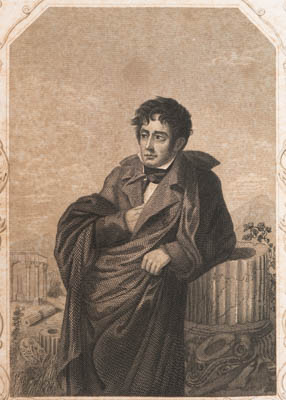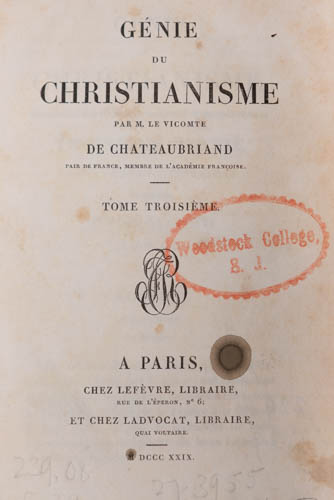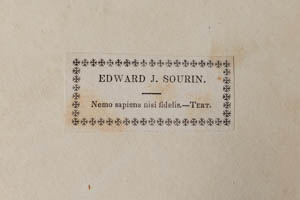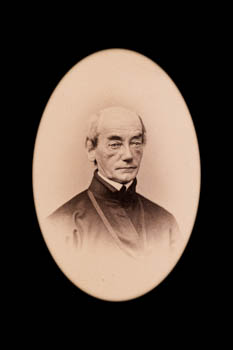
François-René de Chateaubriand
In his most recent book entitled Vatican I: The Council and the Making of the Ultramontane Church, John W. O’Malley, S.J. examines the intellectual mood of France after the Revolution especially the literary production that happened in the late eighteenth and early nineteenth centuries. One important work O’Malley discusses is the Le genie du christianisme, ou Beautés de la religion chrétienne (The Genius of Christianity, or, The Spirit and Beauty of the Christian Religion), which was first published in 1802 and authored by François-René de Chateaubriand and whose picture at the left comes from the 3rd rev. edition. O'Malley describes it as “a brilliant nostalgic, and imaginative rereading of history, ranged over the cultural and civilizing achievements of the past to show how they were either Christian in inspiration or sublimated by Christianity.” (p. 46) He goes on to say that the “book was a huge success and is credited with founding Romanticism in French literature.” (p. 46)
Woodstock Theological Library has a 1829 printing of Genie du christianisme, pictured to the right. As indicated on the title page it was sold by two Parisian booksellers, namely Jean-Jacques Lefèvre (1779-1858) and Pierre-François Ladvocat (1791-1854), the publisher. On the front paste-down of our second volume is a bookplate (pictured below) for the former owner of this book: Edward J. Sourin, S.J. (1808-1888).
In Woodstock Letters, Vol. 17, No. 3 (1888), there is a brief sketch of Fr. Sourin (pictured below) by an unnamed author. He was born in Philadelphia, but was orphaned at an early age. As a boy he attended Mount Saint Mary’s College in Emmittsburg, Maryland where he began studying for the priesthood. He was ordained in 1832. He entered the Society of Jesus in 1855, pronouncing final vows in 1866. In the sketch’s closing, the anonymous author says of Fr. Sourin: “As we linger over the memory of that saintly career, beautiful in its holy simplicity and exalted virtue, we are struck with admiration at what a consummate work that life is which has answered the designs of the Divine Architect.” (p. 353)
Entry written by Amy Phillips on 5/3/2018



